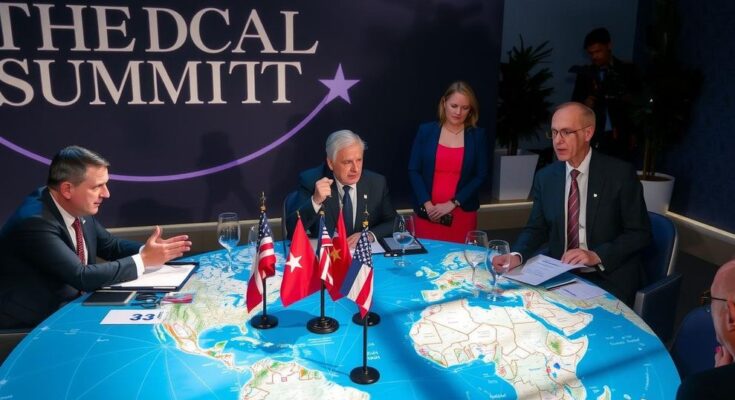COP29 in Baku, Azerbaijan, drew significant criticism as African leaders expressed outrage over receiving only $300 billion in commitments out of the projected $1.3 trillion needed for climate adaptation. The event was heavily influenced by lobbyists from fossil fuel companies, raising concerns about the effectiveness of negotiations. Leaders from developing countries emphasize the need for wealthier nations to compensate those most impacted by climate change.
The recently concluded COP29 in Baku, Azerbaijan, has sparked outrage among African leaders and developing nations, as they fell significantly short of their funding goals for climate change mitigation and adaptation. The African bloc sought $1.3 trillion to address climate impacts but received only $300 billion in commitments, leading Kudakwashe Manjonjo of Power Shift Africa to assert that “COP29 failed Africa.” The event has drawn criticism due to the overwhelming presence of lobbyists from fossil fuel industries, further complicating discussions on climate solutions. Developing nations argue that those most responsible for climate change should compensate those most affected, yet the commitments made at COP29 were deemed inadequate and unenforceable, causing disappointment among attending leaders.
The COP meetings, an annual series organized by the United Nations, focus on addressing global climate change issues with the aim of fostering international cooperation. COP29 serves as a platform to negotiate climate finance, technology transfer, and climate resilience strategies for developing countries, particularly in Africa. However, the presence of major fossil fuel industry interests has raised concerns about the potential conflicts of interest and the effectiveness of these negotiations. The expectation that wealthier nations should support developing countries in combating climate challenges stems from the historical context of their industrial activities, which are primarily responsible for global greenhouse gas emissions.
In summation, COP29 has elicited significant dissatisfaction amongst African and other developing nations due to the insufficient financial commitments made to combat climate change. The stark contrast between the expected funding and actual pledges highlights the ongoing challenges in global cooperation regarding climate justice. Leaders have voiced their discontent, indicating that without substantial action and support from wealthier nations, the goals of these conferences may remain unattainable, fostering further inequality in the impacts of climate change.
Original Source: www.thecooldown.com




